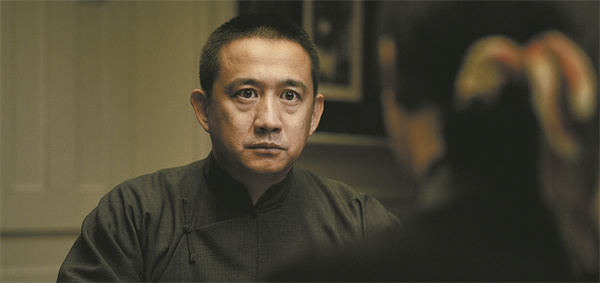

"I wrote some new scenes that amounted to around five to six pages. Then I realized that the story needed a new character to explain certain hints and twists. As a result, I 'accidentally' came up with my favorite scene," recalls Cheng.
In this scene, the character played by Huang, meets with Leung's spy chief character in a confidential meeting. The traitor wants to exchange valuable information for his safety and money to return to his rural hometown. In this subtle and tense atmosphere, both actors deliver nuanced performances, using their delicate facial emotions to reveal their unknown secrets.
Food, ranging from eastern China's delicacies to Japanese dishes and Western pastries, plays a significant role in the movie. The film crew constructed a kitchen on the set, recruited a chef who excels in Japanese cuisine, and reserved some delicacies from a restaurant known for cooking trademark dishes from Ningbo in Zhejiang province.
"Drunken shrimp" appears in two important scenes in the film, serving as a metaphor for the complicated humanity of both brutality and compassion. The typical Ningbo dish is made by immersing living freshwater shrimp in a plate of white liquor, or baijiu, and eating them with a special sauce.
"Many important moments in life happen at the dining table. So, in my film, dishes not only serve as food but also play a role in driving the story forward," says the director.
Currently, the movie has raked in more than 920 million yuan ($132.8 million) in China, making it the fourth highest-grossing film this year, according to the box-office tracer Beacon.